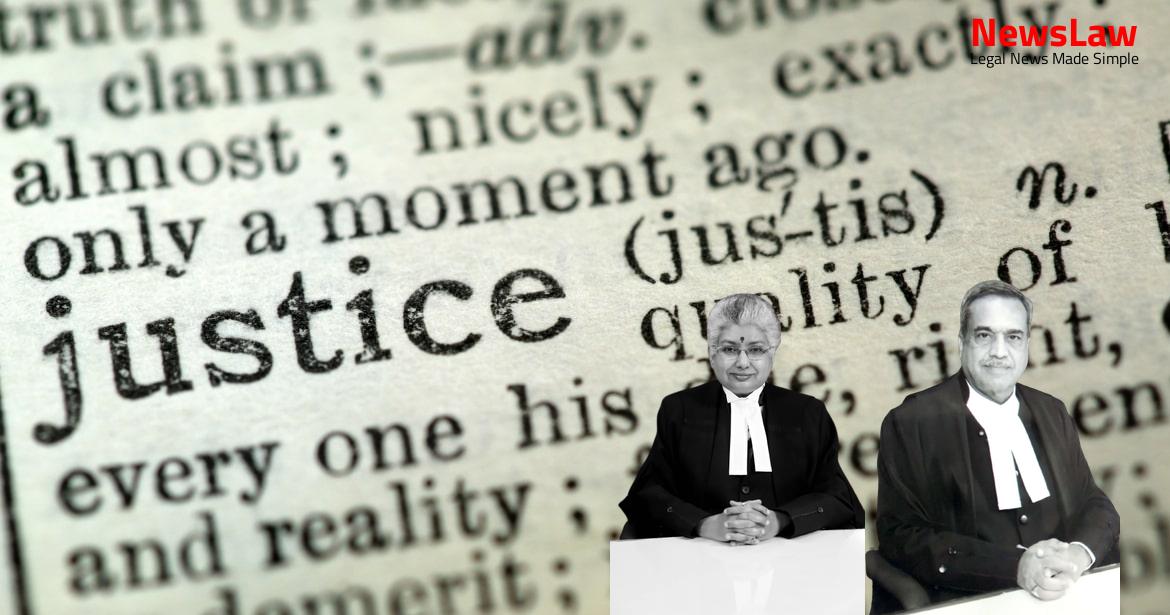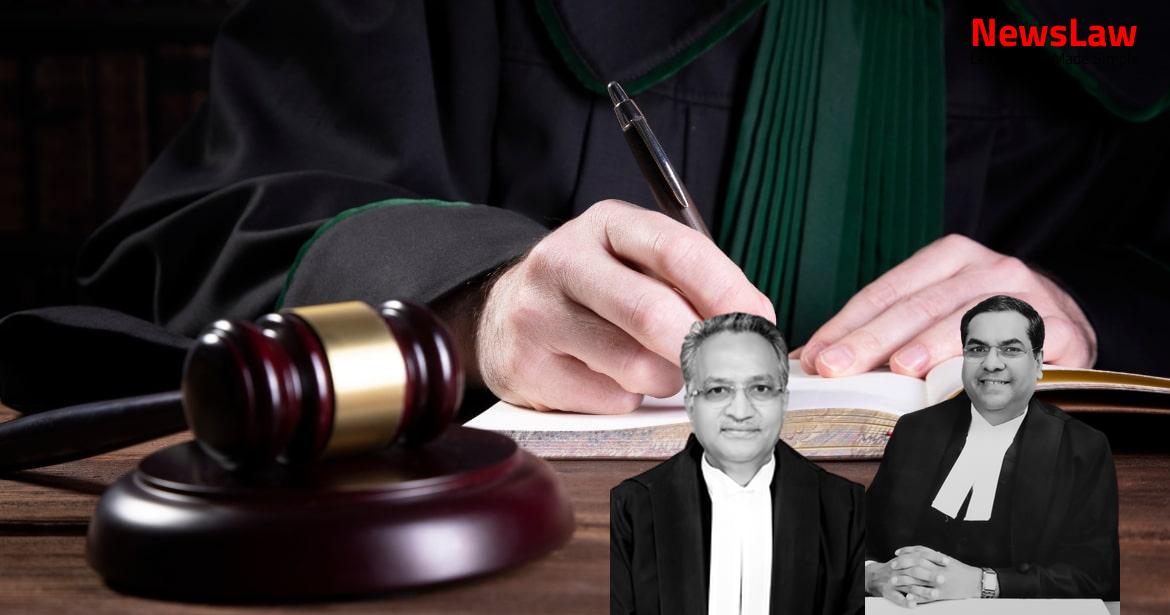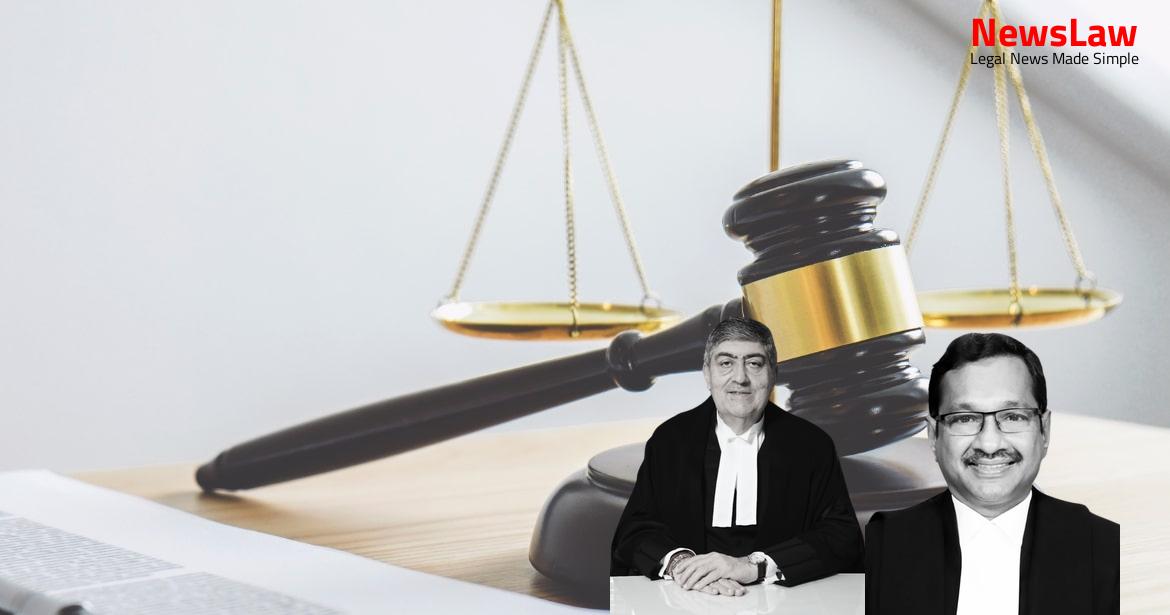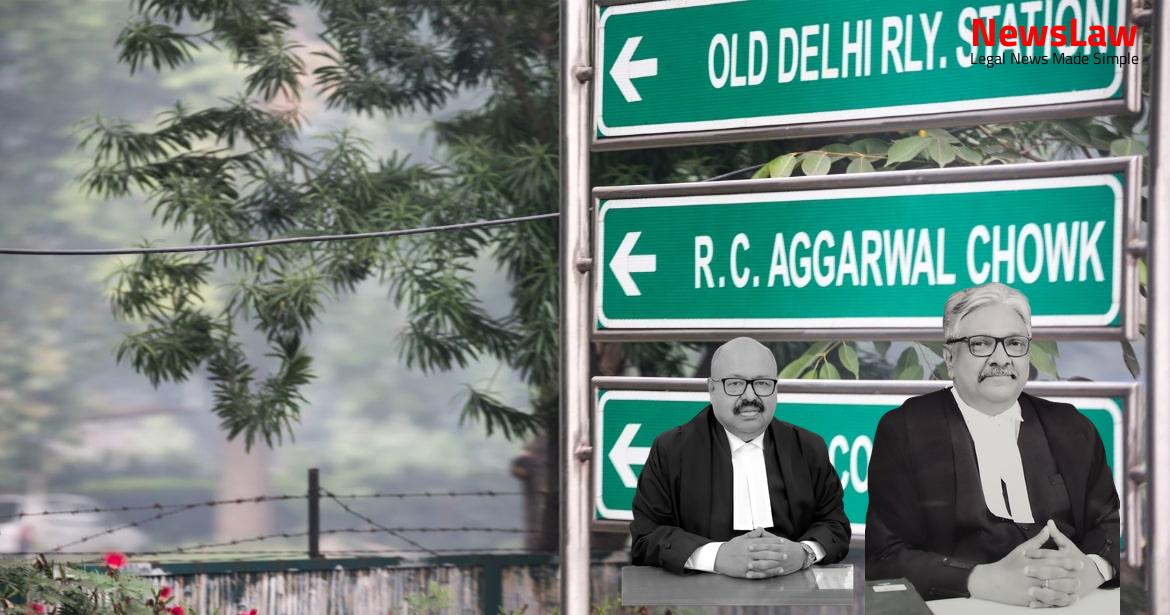Explore the legal nuances surrounding the appointment of Vice Chancellors in universities, focusing on the court’s analysis of compliance with UGC regulations. Upholding statutory provisions is crucial to maintain the quality and credibility of higher education institutions. Join us in understanding the significance of legal standards in shaping the leadership of educational establishments.
Facts
- Governor of Gujarat communicated the need to comply with UGC Regulations for Vice Chancellor appointments.
- A Search Committee was constituted under the SPU Act without the nominee of the Chairman of the UGC as per Regulation 7.3.0.
- An advertisement was published inviting applications for the Vice Chancellor post of SP University.
- The Search Committee was not constituted as per UGC Regulations for the appointment.
- Respondent No.4 was appointed as Vice Chancellor despite lacking eligibility as per UGC Regulations.
- The Scheme adopted by the State of Gujarat makes UGC Regulations binding for SP University.
- Respondent No.4 was appointed as Professor in 2008 and subsequently as Vice Chancellor.
- Union Ministry of Human Resource Development issued a Scheme for pay revision in Universities.
- Respondent No.4 did not meet the mandatory ten years teaching work experience as required by UGC Regulations.
- The UGC Regulations provide minimum qualifications for the appointment of Vice Chancellors.
- The State of Gujarat was requested to ensure appointments are in accordance with UGC Regulations.
- The State legislation needs to be appropriately amended to make UGC Regulations binding.
- The High Court noted communication from the Principal Secretary to the Chancellor and UGC to the Governor of Gujarat regarding the adoption of UGC Regulations.
- The Division Bench of the High Court dismissed an SCA upholding the appointment of respondent No.4 as Vice Chancellor, citing absence of UGC Regulations being adopted by the State.
- The SPU Act does not specify any qualifications for the post of Vice Chancellor.
- The Supreme Court did not interfere with the appointment of respondent No.4 due to limited time remaining in their first term, leaving all legal questions open.
Also Read: Ruling on Circumstantial Evidence in Murder Case
Arguments
- The petitioner has filed a writ petition under Article 32 of the Constitution of India challenging the appointment of respondent No.4 as Vice Chancellor of the SP University.
- The petitioner argues that the appointment does not meet the requirements of UGC Regulations, 2010 and 2018 which are binding on the State and universities.
- The Search Committee for the appointment of the Vice Chancellor was not legally constituted as per UGC guidelines.
- The State legislation has not been amended to provide for minimum eligibility criteria as per UGC Regulations, despite communications from the UGC and the Governor of Gujarat.
- The appointment of respondent No.4 is deemed illegal and contrary to statutory guidelines, warranting a writ of quo warranto.
- The petitioner emphasizes the importance of the Vice Chancellor role in a university and the need for adherence to regulations to ensure quality education.
- The petitioner’s standing in challenging the appointment is questioned, alleging personal grudge, but the petitioner argues for the public interest in upholding legal standards for such appointments.
Also Read: Challenging Legal Presumptions in Negotiable Instrument Cases
Analysis
- The Vice-Chancellor shall be appointed by the State Government from amongst three persons recommended by a committee appointed for the purpose
- The Committee for appointing the Vice-Chancellor shall consist of certain specified members
- The emoluments for the Vice-Chancellor shall be determined by the State Government and cannot be varied to his disadvantage during his term
- The Vice-Chancellor shall hold office for a term of three years, with the possibility of reappointment for another three-year term
- UGV Regulations, 2010 prescribe certain criteria for the appointment of the Vice-Chancellor, including teaching work experience and the constitution of a search committee
- Prior to UGC Regulations, 2010, a scheme for revision of pay for teachers in Universities following the 6th Central Pay Commission was in place
- The Scheme provides a fixed pay and special allowances for the Vice-Chancellor, with financial assistance from the Central Government and the State Government for implementation
- The search committee for appointing the Vice-Chancellor shall consist of specific members as prescribed in the Act, including members nominated by the Syndicate and the Academic Council
- The implementation of the scheme for revision of pay scales for the Vice-Chancellor is subject to compliance with UGC regulations and guidelines
- The UGC Regulations, 2010 and UGC Regulations, 2018 are binding on the State Government and universities.
- The eligibility criteria for the post of Vice Chancellor must align with UGC regulations.
- The appointment of respondent No.4 as Vice Chancellor is contrary to UGC regulations.
- The State of Gujarat has not amended State legislation to comply with UGC regulations.
- The Search Committee exceeded its jurisdiction by diluting the eligibility criteria laid down in UGC Regulations.
- The role of the Vice-Chancellor is crucial and requires leadership qualities, academic excellence, and integrity.
- Communication from UGC and the Governor of Gujarat emphasized adherence to UGC Regulations for Vice Chancellor appointments.
- Central legislation prevails over State legislation in the case of conflict.
- It is necessary for the Vice Chancellor to have teaching research experience and leadership qualities as prescribed by UGC.
- The appointment of Vice Chancellors should be as per statutory rules to avoid arbitrariness.
- A writ of quo warranto can be issued when an appointment is contrary to statutory provisions.
- The purpose of quo warranto proceedings is to determine the title of a person holding a public office or franchise and to oust them if they have no title.
- Quo warranto serves as a tool for the judiciary to prevent illegal appointments and protect citizens’ rights to public office.
- The jurisdiction of the High Court to issue a writ of quo warranto is limited to appointments made contrary to statutory rules.
- The Ramlal Parikh Committee emphasized the need for distinguished and dignified Vice-Chancellors in universities.
- The role of Vice-Chancellors in Indian Universities has gained paramount importance, as stated by the University Grants Commission.
- The Vice-Chancellor is expected to be efficient in implementing national higher education policies, fostering institutional change, enhancing quality and innovation, engaging in research and innovation, and adopting good governance practices.
- The Vice Chancellor should lead like an orchestra conductor, focusing on teamwork, strategy, accountability, and institutional performance evaluation.
- The issuance of a writ of quo warranto requires that the High Court determines if the appointment is against statutory rules.
- Locus standi rules are relaxed to some extent in quo warranto proceedings, which aim to protect the public from illegal office-holders.
- Members of the Search Committee are responsible for selecting and suggesting names for the Vice Chancellor appointment.
- Commitment to quality and objectives of universities and higher education is crucial in selecting the right person.
Also Read: Legal Analysis Critique in High Court’s Quashing Order
Decision
- The State and universities should consider the mentioned aspects while appointing a new Vice Chancellor.
- Hope and trust are expressed that the State and universities will keep these aspects in mind during the appointment process.
- The matter is left with hope and trust that the recommendations will be followed.
Case Title: GAMBHIRDAN K GADHVI Vs. THE STATE OF GUJARAT (2022 INSC 259)
Case Number: W.P.(C) No.-001525 / 2019



